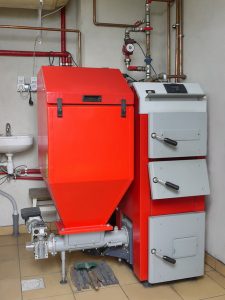 As we prepare our homes for winter, it’s important to assess our heating systems. The best way to do this is to schedule routine maintenance heater service in Loveland, OH. Giving HVAC professionals a chance to analyze a furnace, boiler, or heat pump provides a homeowner with valuable information about the future of the system—if it still has a future. If a heater has years of life left in it, maintenance helps ensure the best performance and energy efficiency over the coming season.
As we prepare our homes for winter, it’s important to assess our heating systems. The best way to do this is to schedule routine maintenance heater service in Loveland, OH. Giving HVAC professionals a chance to analyze a furnace, boiler, or heat pump provides a homeowner with valuable information about the future of the system—if it still has a future. If a heater has years of life left in it, maintenance helps ensure the best performance and energy efficiency over the coming season.
Let’s focus on the future of your heating system—specifically the boiler, if your home is one of the many in the area that relies on a hydronic boiler system. A warning sign of a boiler in jeopardy is the appearance of corrosion, such as rust, along the tank or other components. It looks like bad news… but does it mean the boiler must be replaced?
How Corrosion Starts to Eat Away at a Boiler
A boiler is made of metal and uses water—it makes sense for corrosion to start, since the definition of corrosion is a chemical reaction between metal and water in the presence of oxygen. Yet your boiler shouldn’t show any signs of corrosion for most of its life. This is because boilers are designed with corrosion resistance as a vital feature.
One of the ways a boiler keeps away corrosion is by keeping out oxygen. The sealed boiler system contains no air inside it. There’s no opportunity for the chemical reaction between water and metal to turn to corrosion without the presence of oxygen.
Unfortunately, oxygen can get inside a boiler through leaks in the system. Water escapes and air gets inside, mixing with the water and triggering the reaction that creates corrosion. Water leaks are bad no matter what, and if you don’t move fast to have them repaired, corrosion will soon happen.
Another source of corrosion is the development of limescale. If the water inside the boiler contains a high mineral content (because of hard water), limescale will begin to form on the inside of the boiler—which creates all types of problems.
Finally, the heat exchanger at the bottom of the boiler, the component where the gas jets transfer their heat into the tank, can corrode because of years of exposure to the vapor in the combustion gas.
Is Corrosion the End of the Line?
Not always. In the case of rust on the heat exchanger, the heat exchanger can be replaced. Because corrosion spreads, it’s important to have repair work done on the heat exchanger as soon as you notice corrosion beginning. There are also a number of other components of a boiler that can be replaced when they corrode and not require replacing the main boiler tank.
Corrosion on the tank, however, almost always means its time for a new boiler. Corrosion is most likely to occur when the boiler is more than 20 years in service. At that point, it’s already time to begin considering putting in a new unit.
Please consult with our heating experts for a professional opinion about what to do with your boiler in jeopardy.
“For a Comfortable Way of Life,” call Bartels Heating & Cooling. We offer 24-hour emergency service.
